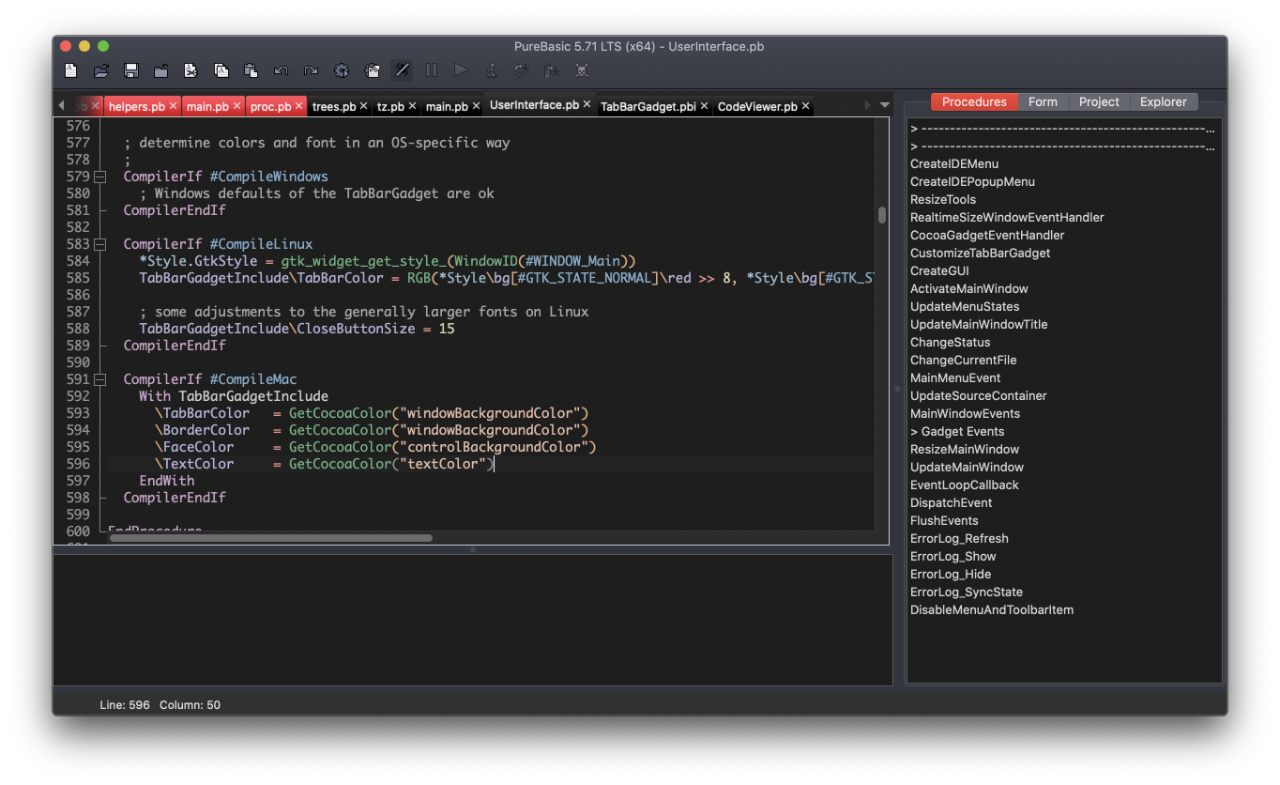Good newsChrisR wrote:and now it's all good, I can start playing with it
I try with SDKs v8.1A and v10.0A and it compile.
Good newsChrisR wrote:and now it's all good, I can start playing with it
We've probably all been through the programmer's Hell — where changes are published via Zip files on websites, soon destined to become dead links, and to integrate each others' changes to the code we had to spend sleepless night comparing the changed files against the original codebase, side-by-side (muttering unrepeatable swear words out of frustration).A man spoke with the Lord about heaven and hell. The Lord said to the man, “Come, I will show you hell.”
They entered a room where a group of people sat around a huge pot of stew. Everyone was famished, desperate and starving. Each held a spoon that reached the pot, but each spoon had a handle so much longer than their own arm that it could not be used to get the stew into their own mouths. The suffering was terrible.
“Come, now I will show you heaven,” the Lord said after a while. They entered another room, identical to the first — the pot of stew, the group of people, the same long-handled spoons. But there everyone was happy and well-nourished. “I don’t understand,” said the man. “Why are they happy here when they were miserable in the other room and everything was the same?”
The Lord smiled, “Ah, it is simple,” he said. “Here they have learned to feed each other.”
The problem in integrating the changes you've carried out outside of a version-controlled workflow is that this demands a considerable amount of work from the repository maintainers.Shardik wrote:Unfortunately I am not familiar with GitHub pull requests. But perhaps someone with more knowledge than me might create a pull request for this and even define a checkbox in the editor pane of the preferences so that everybody is able to switch the indentation behaviour to his liking. These are the steps I have undertaken:
- Download the PureBasic IDE from GitHub as a zip file and unpack it
- Open PureBasicIDE/ScintillaHilightning.pb in your PB IDE
- Jump to procedure GetIndentContinuationPrefix()
- Comment out the 2nd line in the procedure (my preferred indentation was already in place but commented and unfortunately not chosable in the preferences):
The maintainers of the PureBasic Open Source Projects have now unlocked the project Wiki for public editing:kenmo wrote:I would like to see all these technical details and tips in a common place, rather than buried in this announcement thread, if that's OK with everyone else.
I didn't get my hands on the IDE Source Code (yet?), but wouldn't that fool all the people who are using REAL tabs?Shardik wrote:or better change it toTabLength is defined in PureBasicIDE/Common.pb as Global and contains the number of spaces used when pressing the <Tab> key. So the indentation with spaces will be correct independant of your chosen setting for your preferred tab key spaces. The commented default above will always indent with 4 spaces.Code: Select all
Procedure.s GetIndentContinuationPrefix(Previous$) ; Use this for a simple "block mode" indentation ProcedureReturn GetIndentPrefix(Previous$) + Space(TabLength)




Yes it's sureGreat master wrote:Fantaisie Software and its creator have no equal anywhere. A truly amazing company and registered users are fortunate indeed.


 The happiness is a road...
The happiness is a road...


I guess he has a plugin in development.Josh wrote:I don't even want to know what Leonardo DiCaprio does with KCC during these kinds of movements